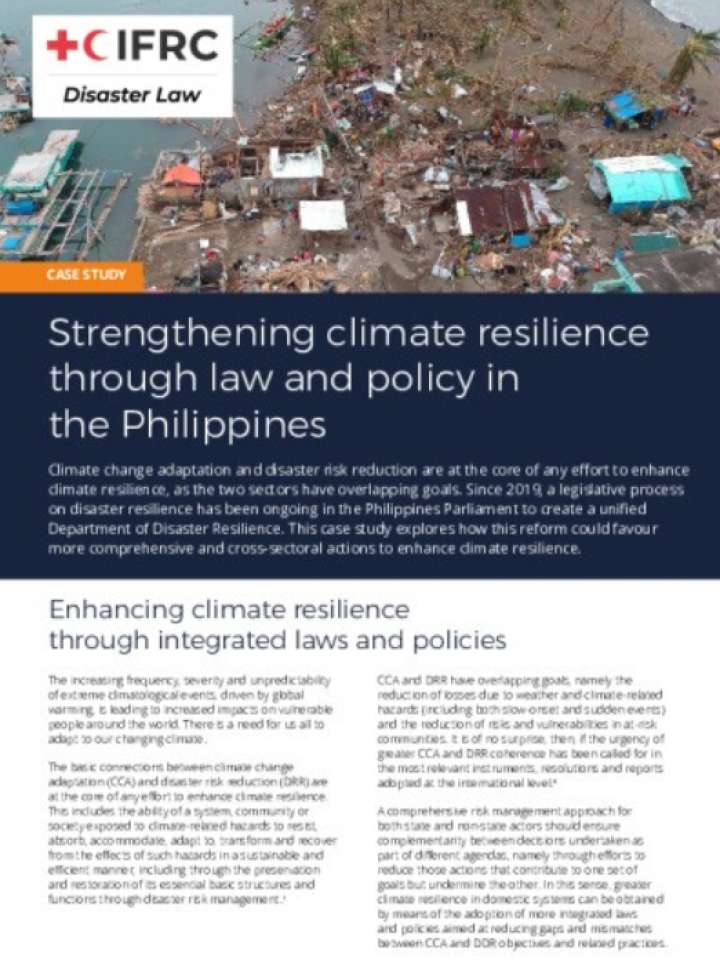Strengthening climate resilience through law and policy in the Philippines
This case study explores how disaster resilience reform in the Philippines could favour more comprehensive and cross-sectoral actions to enhance climate resilience. Since 2019, a legislative process on disaster resilience has been ongoing in the Philippines Parliament to create a unified Department of Disaster Resilience. The establishment of this new, unified government agency – which would substitute the previous Climate Change Commission and National Disaster Risk Reduction and Management Council – is meant to favour more comprehensive and cross-sectoral actions to reduce climate and disasters risks, as well as a continuous development of programmes and actions ensuring climate resilience.
This study identifies key recommendations including: the inclusion in the bill of a more explicit normative alignment with intersecting commitments taken internationally; more concrete means to reduce the exposure of specific vulnerable groups could also be included, (along the lines of what the Bill foresees for the indigenous people) as well as more details on how the natural environment and its assets can be used to manage climate and disaster risks; and ensure its effective implementation through the investment of the necessary resources, effective coordination at different administrative levels, and awareness-raising activities with at-risk communities.
Explore further
